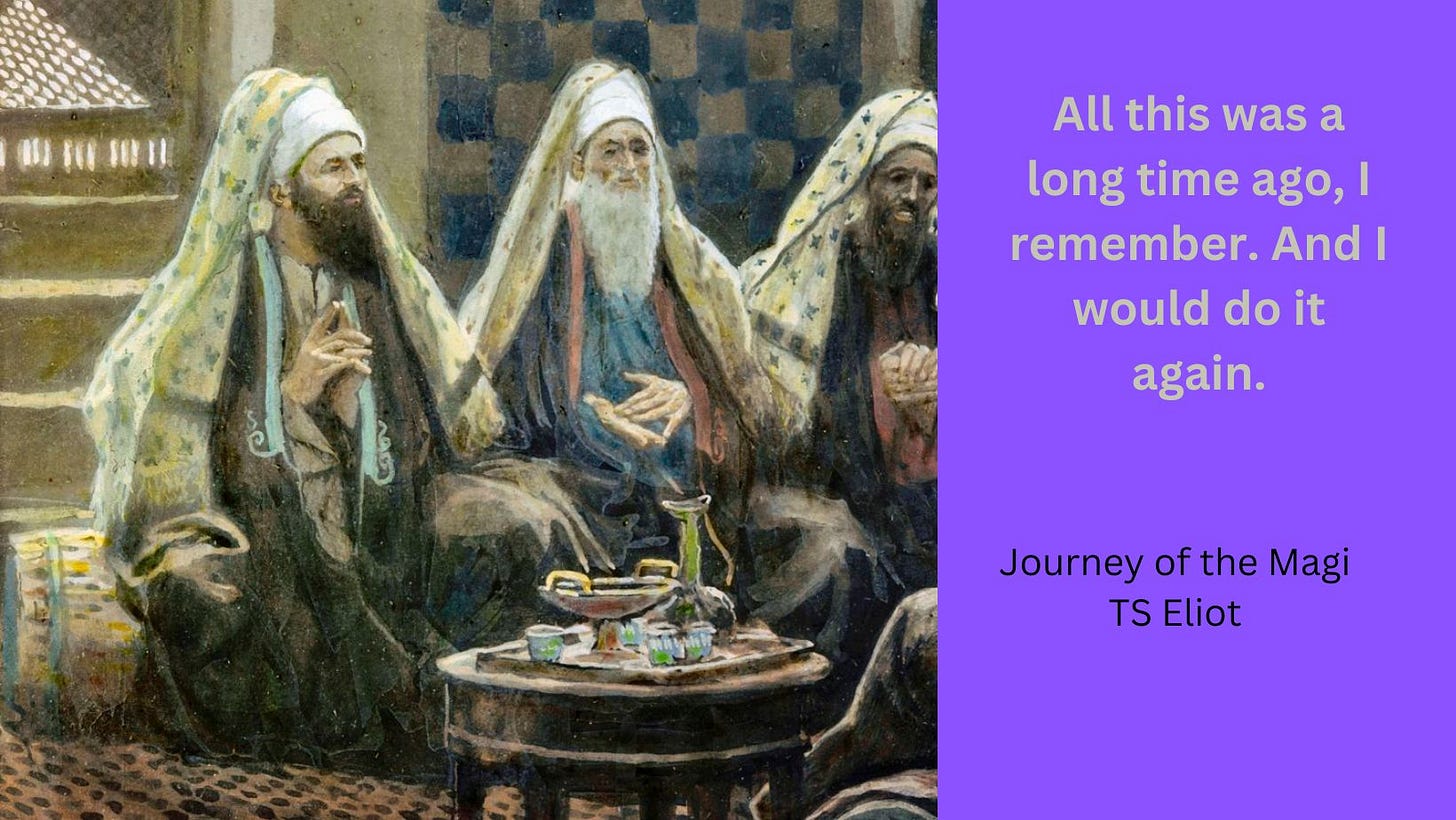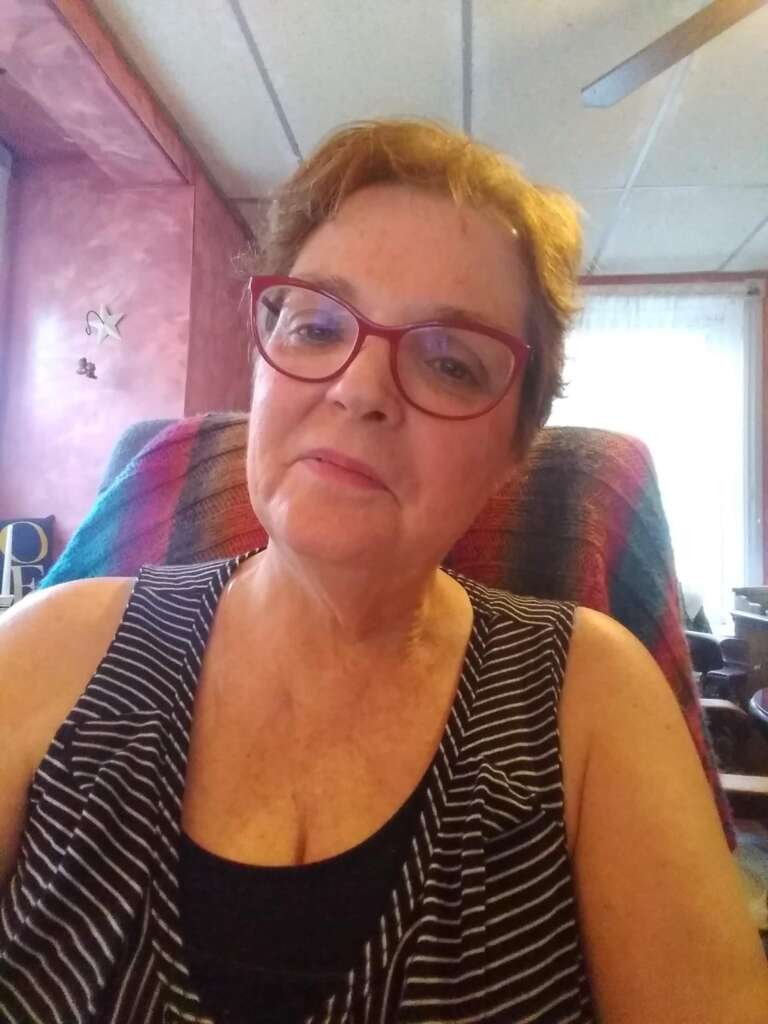All this was a long time ago, I remember. And I would do it again.
These lines begin the final stanza of Eliot’s poem, “Journey of the Magi.” The speaker of the poem—a Magus—leaves the physical descriptions of the harsh journey and focuses on his own feelings about the experience. He has, the first two stanzas have indicated, terrible memories of the trip. But, he says, he would “do it again.”
While much of the poem focuses on the Epiphany (Matthew 2:1-12), the journey was for each of the Magi a very personal one. But it is also a universal journey, one that each person must make for themselves. We each need to count the cost that is part of such a journey. This mirrors Eliot’s emotions in rejecting secularism for Christianity. In the last stanza, the Magi are forced to measure their former lives of rich opulence and sensuality against the simplicity of Christ’s gift of salvation.
Would I do it again? If I had known, way back in 1996 when my husband first began to exhibit symptoms of mental illness, that a car accident four years later would radically change my life, would I have stayed? Would I have willingly endured many more years of such a challenging life, full of hospitalizations, crisis units, and financial constraints?
It’s a question I’ve thought about often in the years since Ron’s death. And the answer is, “yes.” Like the Magi, I would “do it again.”
My answer is not based just on the vows I made to Ron and God at the marriage altar but on my personal growth during what was a very difficult journey, where I often felt unsupported and even, in the case of my father-in-law, blamed. I gained strength physically, emotionally, and spiritually during the journey. I would not forsake it.
REFLECTION:
Think back on your own difficult journey. What did you gain from it? Was it worth the sacrifices you made? Would you do it again?
Would you like to know more about how God can provide comfort during the many difficult journeys of our lives? Read more on my blog at http://lindaca1.substack.com

